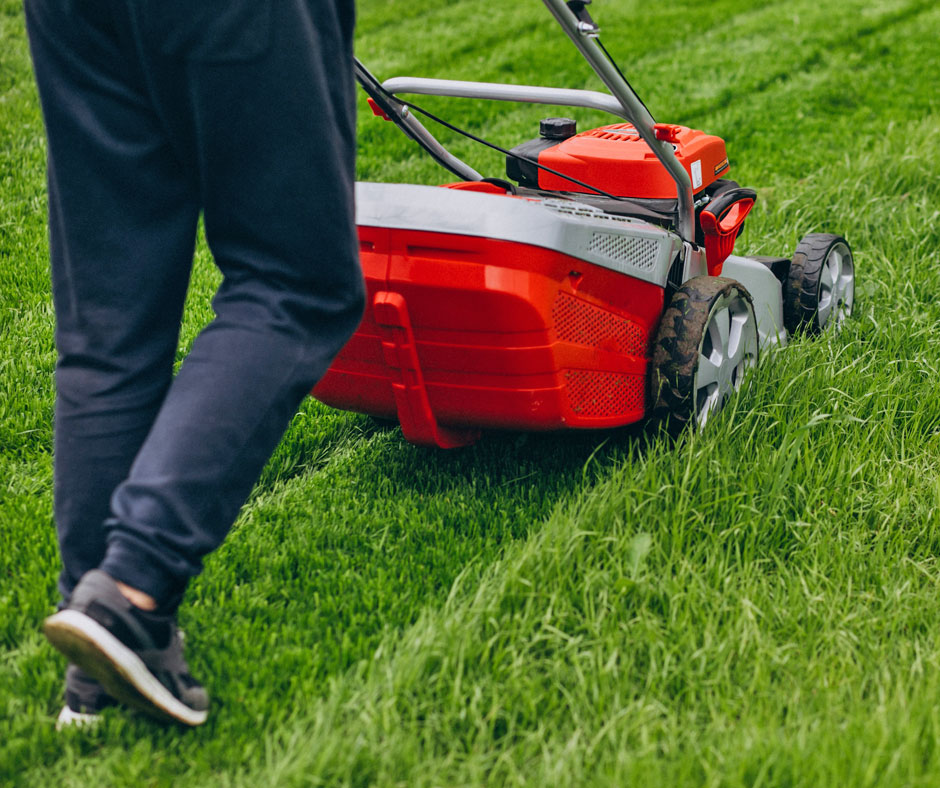Many people claim to be allergic to yardwork, but what if you actually are? Grass pollen is one of the most common causes of outdoor allergies, triggering troublesome symptoms like sneezing, sinus congestion, headaches, and even hives. Lawn mowers are notorious for kicking up this allergy-producing pollen, turning this sticky summer chore into an even bigger challenge. So, do you have to choose between curb appeal and comfort?
While allergies are a great excuse to miss a weekly mow, they don’t have to be! If you want to enjoy an attractive yard and live free of allergies, making a few changes to your mowing routine can make all the difference. Here are nine ways to combat allergies and survive the summer mowing season.
Mow with a mask.
Masking up before you mow will reduce your exposure to airborne allergens. N95 masks will filter the smallest particles, but you can use any mask approved by the National Institute for Occupational Safety and Health (NIOSH). Be sure to wash reusable masks after every use.
Cover with clothing.
If you can handle the heat, wearing long clothing as you mow will prevent pollen from building up on your skin. If temperatures are high, work in short increments and drink plenty of water to avoid dehydration.
Keep your lawn short.
Longer blades release more pollen, increasing your seasonal symptoms. To decrease pollination, mow your grass to about two inches tall and maintain it through the summer season.
Capture your clippings.
Use a mower with a built-in bag to capture grass clippings as you cut. This will stop them from stirring up pollen and cut down on rapid lawn growth.
Mow when pollen is low.
Check your local pollen counts before cranking up your mower. Pollen peaks at different times of day, but is typically lower in the late evening or after a summer rain shower.
Clean up quickly.
Thoroughly wash your hair, body, and clothing immediately after mowing to remove any pollen and shorten allergy symptoms.
Maintain your medication.
Take your allergy medication every day to stay on top of your symptoms. For best results, begin taking your medication a few weeks before peak allergy season.
Consider replacing your grass.
Some grasses, like Bermuda or Rye, release more pollen than others. If your allergies are severe, you may consider swapping your lawn for a more low-allergy grass type, such as St. Augustine or Buffalo grass.
Try immunotherapy.
Allergy immunotherapy can provide real, lasting relief from troublesome allergy symptoms. Our sublingual allergy drops are effective at combating many outdoor allergies, including grass pollen, in a convenient, pain-free package.

